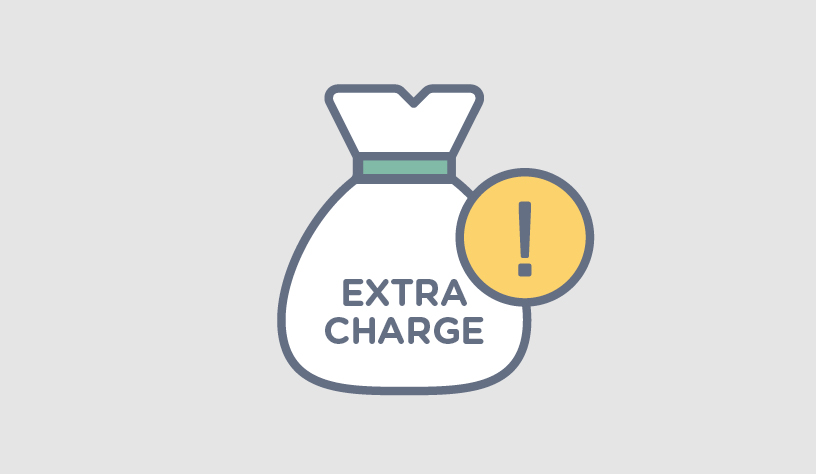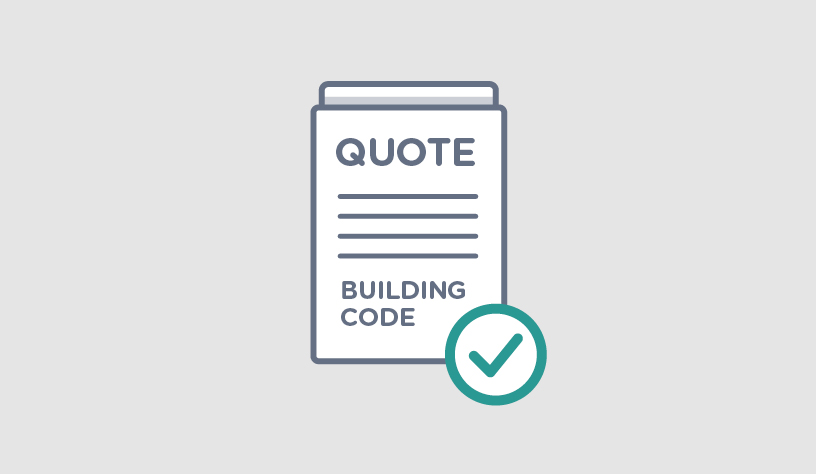An estimate is a best guess of how much a job might cost. A quote is more exact. Once you've accepted a quote, the contractor has to do the work for that price.
Quotes are more accurate than estimates. An estimate will give you a rough idea of the cost before you finalise your plans and send them out for quotes.
Getting an estimate
An estimate is not a set price. An estimate is roughly how much the contractor thinks the job will cost, based on skill and past experience.
For bigger jobs, it is a good starting point while you plan. It will help you work out your overall budget.
You will need an estimate for:
- getting building consent
- applying for a loan
Once you get an estimate and decide to use that contractor, you should then get a proper quote in writing.
Using a quantity surveyor to get an estimate
A quantity surveyor is a person trained in costing construction jobs. They can work with you, your designer, engineer and builder to give you an accurate estimate of what the job might cost.
You might want to use a quantity surveyor if:
- you're only getting one quote, or
- you're managing the project yourself.
You can also get a quantity surveyor to do an estimate before you put the job out to tender. This gives you a benchmark to judge quotes against. You can give the builders who are tendering the quantity surveyor's estimates of materials and labour (but don't give them the estimated prices) so they have more information to use in putting together their estimate or quote.
Getting a quote
A quote is an offer to do a job for an exact price. Once you accept a quote, the contractor can’t charge you more than the agreed price unless you agree to extra work, or the scope of the job changes while it is underway. Legally, this is known as a variation to your contract.

Shop around
If you can, get quotes from three businesses.
For each business, check:
- they're well established and have a history of doing the kind of work you need
- if they're a member of a trade association — this may give you a free and independent dispute resolution process to resolve problems, or extra warranties if the work is not done properly
- references from previous clients.
Even if you are only approaching one business, ask for a detailed quote or estimate in writing so you have a paper trail if anything goes wrong.

Give information
Provide as much information as possible. The more you give, the more accurate the quotes will be.
Give each business:
- all the detailed drawings and specifications of the work and the materials
- the construction details
- the location of the building site and position of the house on the site.
If you used a quantity surveyor, also provide their estimate for materials.

Ask for it in writing
Ask for a written quote or estimate.
You should specify:
- you want a breakdown of labour and material costs
- any dates you need work done by
- you want a response in writing
- whether you want a quote or an estimate
- the type of contract you plan to use (full, labour-only, or managed labour-only)
- you won't necessarily pick the cheapest tender, but will also consider things like reputation and qualifications.
Tell each business that you're getting others to tender – it is not only fair, but means they are more likely to give you a competitive quote.
Read more about Building contracts

Check for fees
Check if the business charges a fee to prepare a quote. They have to tell you beforehand if they do, but you can always ask to be sure.
Tenders and quotes(external link) – Building Performance
Comparing quotes

Think more than money
When comparing quotes, money shouldn't be the only factor. You should also consider the contractor's:
- level of experience and reliability
- what fixtures and fittings they suggest
- references and past projects.
You can always negotiate with your chosen business on price.
 Get enough information
Get enough information
The quotes should show:
- what needs to be done
- costs for all the materials and fittings
- the hourly rate for the labour of the tradesperson and subcontractors
- how long the work will take.
 Ask questions
Ask questions
If the quotes vary a lot in price, it’s worth asking why. It could mean the business:
- is proposing using higher-quality materials
- is more realistic about how long the job will take, or
- has misunderstood the project.
 Choose a contractor
Choose a contractor
When you've made your decision and chosen your contractor, you should let the other businesses that provided quotes know.
There is no legal requirement for you to pay a deposit when you've accepted a quote. If you do, don't pay more than 10% of the total cost.
Quoting for fixtures and fittings
Make sure you're happy with the proposed quality of specified fixtures and finishes in the quote. Once you've signed the contract, changing these will be a variation of the contract.
If some or all of the fixtures and fittings haven't been chosen or the prices aren't known yet, these can be quoted as:
- a provisional sum — a lump sum set aside to cover these items. Provisional sums are often underestimated, so ask the contractor to confirm that the amount quoted will cover the quality of goods you're expecting
- a prime cost sum — a fixed amount set aside for a particular item so you can choose it yourself. If you choose something that costs more than the prime cost sum, you'll need to pay extra. A prime cost sum does not include any installation costs unless stated.
If you're asking difficult questions or negotiating the terms of your contract, ask someone you trust to help you.
Hidden costs
Janine and Tony are deciding who to use to add a utility room to their kitchen. They're comparing three quotes — two are roughly the same and one is two and a half thousand dollars cheaper. They wonder why. After asking the seemingly less expensive building company to talk them through their quote, they realise it is lower because the electrical work needed for new plug sockets and light fittings aren't included. When they tot up the electrical costs and add it the price, they realise the "lower" quote is, in fact, more expensive.
Once work begins
Extra work
Your tradesperson has to check with you before doing any extra work as this may mean you have to pay more than the quoted price. You always have the right to refuse extra work. If you decide to get the extra work done it is a good idea to shop around and check that the costs for this work are fair and reasonable. You should both agree to the extra work in writing. Make a variation to your contract, or at the very least, put it in an email.








